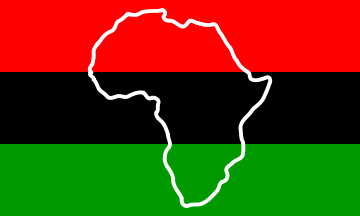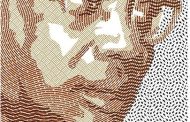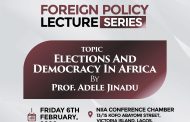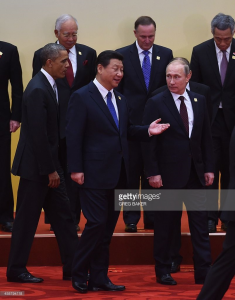One of the ironies of COVID 19 played out today as what was hitherto unthinkable became practicable. The physical gathering for an Africa wide conversation around the life and times of two Pan-Africanists – Tajudeen Abdulraheem and Abubakar Momoh – which had been in the works took place at last in a webinar based memorial which featured participants across the world. The Abuja based Centre for Democracy and Development, (CD) put it together.

Moderator Brian Kagoro

Dr Awino Okech
It was a long but lively conversation that was Taju and Momoh-seque all the way. This is in terms of the diversity of entry points, from the poetic to the global, the gendered and the cosmological, all of which, however, flowed very well into each other with a moderator who was very much on top of it – Brian Kagoro. Brian is whom Dimas Nkunda once described in a newspaper article as one of the closest to Taju and who once referred to Taju as being for Africa what Che Guevara was for South America. “He was involved in liberation struggles in Namibia, Eritrea, Ethiopia, Uganda, Rwanda, Zimbabwe, South Sudan and Nigeria”, said he. Unstable internet connection marred getting everything that each of the speakers had to say but a number of issues came through, again all the way.
The Lagos based poet, Odia Ofeimun kick-started the conversation with a lengthy poetic rendition that is basically a critique of the social condition of and in Africa, citing many dimensions of it understandably from Nigeria, his base. When he spoke later, he had moved from poetry to his idea of how Africa can be railed into one towards his famous quote of ‘Cape to Cairo’. An Africa fused into one through a crisis-crossing rail network would be the performative implication of the Pan-African imagination.
Professor Horace Campbell followed with a picture of what post COVID 19 is looking like for Africa. His situated interpretation is a repeat of how Africa ended up paying for recovery from the recession in 1930. In other words, the scenario unfolding, as far as he can see, is Africa also being made to pay for the current recession already speculated to last an entire decade and for which the United States, for instance, has budgeted $6 trillion at a time the world is moving towards what he calls the multi-polar currency world. As the first Pan-African Conference in the early 20th century was in response to that contradiction, so he imagines contemporary Pan-Africanism reflecting this case of history repeating itself. Campbell thus sends a clear message to ideologues and activists of Pan-Africanism to watch out for the narrative by which the idea of Africa paying for the current recession will be made intelligible or reasonable. In other words, ‘civilising mission’, Washington Consensus, ‘accumulation by dispossession’ and the associated Structural Adjustment Programme, (SAP) might have exhausted their utility. Practitioners of hegemony must already be at work in conservative think tanks working out the new narrative of how Africa might underwrite prosperity of Hegemons. And his question is whether African intellectuals can go into themselves towards bringing into reality an African currency.

Prof Olonisakin, KCL

Prof Horace Campbell
Two African women scholars from the University of London, Professor Funmi Olonisakin from King’s College and Awino Okech from the School of Oriental and African Studies, (SOAS) took Campbell’s issue indirectly when they spoke after each other, with particular reference to Africa’s self-understanding of the COVID pandemic. Olonisakin cannot understand what she calls a deafening silence from the African Union on the pandemic. Dr Okech tells us that 95% of the youth population as well as 79 % of the women population in Africa are all in the informal sector. So, the fact of a few members of the elite being able to connect with the rest of the world from behind their computers doesn’t say anything less about how precarious the ‘African condition’ is. Her second point in this regard is the unfolding phenomenon of short term loans for long term problems that implies mortgaging Africa particularly to emergent powers. So, even if African intellectuals are able to muster a greater push towards a continental currency as Campbell wants, there is still a bigger problem. That problem might be how a continent which has basically no formal sector can only be deceiving itself in engaging in the practices of public financial administration we see across Africa – budget ceremonials, ministries and extra-ministerial departments and the likes. It means these are just catering to the needs of about 10% of the population – the elite.
Dr. Okech went further. She insists on the question of how Africa might construct a COVID moment, especially in terms of the kind of leadership needed to see the kind of change involved. That is leaders with the skills to restructure the space of governance that is more inclusive.
Again, both she and Olonisakin share the same perspective. They all had a starting point in the duo of Taju and Momoh “who knew their role was to create spaces for younger ones rather than occupy the space”. The above quotation may be an incomplete rendition of the full sentence as uttered by Okech but it connects well with her expansion of this thesis. That is the idea of leadership that interrogates having one great chief in town instead of multiples. Olonisakin spoke of how the young people Abu Momoh mentored at the African Leadership Centre at King’s College all admire him till today. She is sure that if Taju were alive, he would have come up with a postcard on COVID 19.
It is possible that the twosome ignited the African cosmological hook-up that Akwasi Aidoo brought in to the discussion. The Akrans of Ghana, said the human rights practitioner, celebrate death because, for them, it is the spirit and one’s purpose on earth that matter, not the body. In other words, we are still talking about Taju and Abu Momoh because their spirit and purpose on earth were so good as for it to be so.
Dr. Chidi Odinkhalu reminded of another of Taju’s slogans which is not as known as “Organise, Don’t Agonise”. It is the one about “One struggle, many fronts”. It speaks to the idea of the struggle being a space of diverse entry points, none of which is too little or irrelevant. He indicated his preference for a struggle for Africa that stretches across the intellectuals, the African institutions and the African governments because African governments “occupy spaces”.
Comments came in from Professor Okello Oculim Adele Junaid, Emmanuel Akwetey, Ebrima Sall, Sony Onyegbula, Otive Igbuzor and Lanre Arogundade, amongst others.

Prof Oculi

Dr Kayode Fayemi
Prof Oculi was duly recognised as a veteran of the Pan-African imagination by Brian Kagoro. Speaking, Oculi brought up his programme of orienting African youths, especially girls, to think and enact Africa through research and performance. He insists along with Odia Ofeimun on free education for African youth, both of them guilty of assuming that there is anything called schooling that can provides anything liberatory for recipients across much of Africa today, with a few exceptions.
Adele Junaid is unhappy that the African states have killed off professional associations across African universities, replacing them with insularity. Obviously responding to Odinkalu, he does not see any point in engaging in dialogue of the deaf between those in the Pan-African struggle and the African power elite. Finally, he favours anchoring internal accountability mechanism to extra African process.
Igbuzor, Onyegbula and Arogundade stressed replicability of Abu Momoh and Taju consciousness in our schools or they fear of ideological demobilization, with particular reference to Pan-Africanism. They also posed the question of how Left ideology reproduce itself and what it might even be as things are today. Dr. Okech apparently echoed this point by asking what Pan-Africanism itself might mean today. Olonisakin took it up, again apparently, by alerting how the ideology would assume youth, technological and other dynamics. But nobody kicked against classical idea of Pan-Africanism as the imagined community of all of African descent, irrespective of their location. The transnationalism implied in that and the Left orientation of the postcolonial cognition means that no one would be aghast if contemporary Pan-Africanism is defined as Socialism with African characteristics, a creative application of the doctrine of emancipation to the ‘African condition’.

The late Prof Abubakar Momoh

Dr. Tajudeen Abdul-raheem
Akwetey thinks that COVID 19 has resolved the debate about state or market because, as far as he can see, the state is back with COVID. His question, however, is what sort of state? The Pan-African state must be one that can go into remaking the social profile of Africa that Dr Okechi revealed earlier in favour of those lost in the informal sector. Later, Odia retouched this into that as defining conditionality for being an African state. And this as the only way to prevent the observation that Taju is reported to have made about India from happening to Africa. Taju had asked “how can India go to space without all Indians going to school”. The same question that Momoh asked each time he insisted on “problematising the problematique”.
Dr. Kayode Fayemi added his own bit to this when he said Momoh was sure to be asking by now if he were around as to how things remain the same the more they appear to be changing. It was probably the beginning of trouble for the governor of Nigeria’s Ekiti State when he then contented that though the world might not have changed, there was no basis for pessimism. At a point in the proceeding, the critical spotlight was on Mister governor. Odinkalu at a point referred to him as an ex-comrade and Brian followed by saying that since Fayemi became a politician, he had mastered the art of choosing what to hear and not to have heard. It was thus not all heavy dosages of Pan-Africanism. The proceeding was interspersed with light moments and the laughter that followed all such.
Last round was Brian’s summary; Fayemi’s point about taking COVID as an opportunity rather than a challenge; Odia’s summing up referring to Africa as being unprepared for what is required, Odinkalu’s point about COVID as a reminder of our mortality.
Kole Shettima who welcomed participants had fleetingly touched on the idea of Taju as “the first African president”, the more popular reference to him in the immediate aftermath of his death. He was, indeed, the African president because he was running something like that – no borders, no locational consciousness in his practices. This could be seen in a Nigerian who was more known in Uganda than in Nigeria and who in Nigeria lived and was more known in Funtua in Katsina State than in Ogbomosho, his birthplace. And he married from Tunisia.
Although the one silence about Taju is even thicker today as only one person made a sentence about it and no one else did thereafter. But there was the good news: Aida, his 12 year old daughter in 2009 when he died is now a graduate of Leeds University in the UK and she, like her father, made a First Class in her First Degree. Which news can be better than that?




























